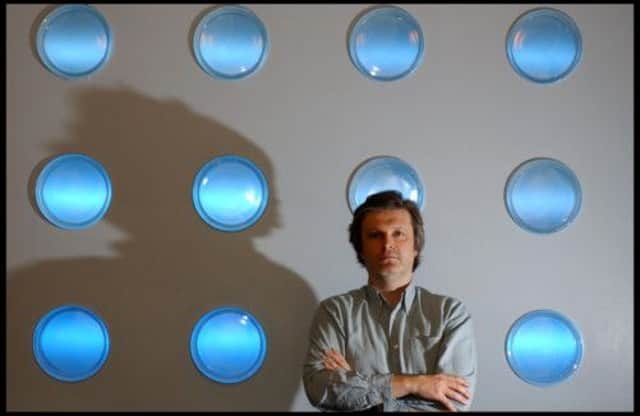Artists cannot be trusted to toe political line


Prominent figures lending their weight to the cause include Scotland’s makar Liz Lochhead, singer-songwriter Karine Polwart, actress and comedian Elaine C Smith, and novelist Alan Bissett. All have been photographed for the Collective’s website, a lively mix of political and cultural comment (by the likes of Ruth Wishart and Gerry Hassan) and songs and poems. At time of writing, around 1,200 others have signed up to this broad, grassroots campaign, from a range of political backgrounds.
It was a little shocking, then, to read the following on Twitter last week: “The National Collective [of artists] has a creepy, fascistic mob mentality. Scottish artists of individual integrity should avoid them,” wrote composer James MacMillan, likening the Collective to “Mussolini’s cheerleaders” and, by insinuation, Nazis – dismissing his justifiably appalled critics with the sign-off: “Bye @WeAreNational Socialist.”
Advertisement
Hide AdAdvertisement
Hide AdIt was an outrageous slur. No evidence whatsoever was cited of the Collective’s allegedly creepy, fascistic mob-like behaviour, nor was it explained who the Mussolini in this picture might be – presumably Alex Salmond, despite the National Collective being a grassroots campaign unconnected to the SNP and sometimes critical of it.
Instead, MacMillan attempted to justify the slur with selective historical examples of artists supporting dubious political causes – Hugh MacDiarmid’s flirtation with fascism, and the Futurists’ support of Mussolini. These are, of course, well documented. There are also countless examples across the years of artists organising themselves against Apartheid and human rights abuses, or the wars in Vietnam and Iraq, or campaigning for women’s rights and gay rights. The suggestion that signing up to a political cause turns independently minded artists into a fascist mob is just laughable.
There are serious issues here, and it’s sad that a high-profile figure such as MacMillan chose to fling hysterical insults rather than engage intelligently with them. There are obvious dangers in artists involving themselves in political causes – that their celebrity distracts attention from the issues, or that naive, well-meaning idealists are manipulated by politicians (although neither is conspicuously happening here, yet).
In recent weeks, too, we’ve witnessed a row surrounding the political stance of the Edinburgh International Festival, after its director Sir Jonathan Mills said next year’s event wouldn’t address the independence referendum in order to remain “politically neutral”. For this, Mills was accused of everything from censoring artists to unionist bias (how, his critics asked, can a festival themed around the Commonwealth and the First World War hope to be politically neutral?).
Mills’ choice of words was foolish, but the reaction highlighted an odd misconception about art and politics that has echoes in the MacMillan row. Artists are, on the whole, contrary outsiders. This is why even the most politically engaged of them choose to be artists rather than politicians. Wherever possible, they do and say whatever the hell they want and cannot be trusted to toe any party line. MacDiarmid, as Kenneth Roy pointed out last week, was a prime example of this, his maverick views an embarrassment to other campaigners for a Scottish parliament. This year, notably, has seen some pro-independence campaigners wincing in embarrassment at Alasdair Gray’s continued use of the inflammatory words “settler” and “colonist” in an otherwise moderate argument. Gray is a supporter of the National Collective, yet currently seems more likely to damage its cause than help it. Awkward sod that he is, though, he remains stubbornly unapologetic. Gray join a mob? He’s about as likely to vote Tory.
As for Mills, the pro-independence movement should thank him. Far from stifling debate, few things are more likely to inspire a wave of independence-inspired art than the director of a major international arts festival suggesting the subject is somehow off limits. It’s also difficult to see how the festival itself, having made such an ill-judged statement, can now avoid the independence debate without facing ridicule.